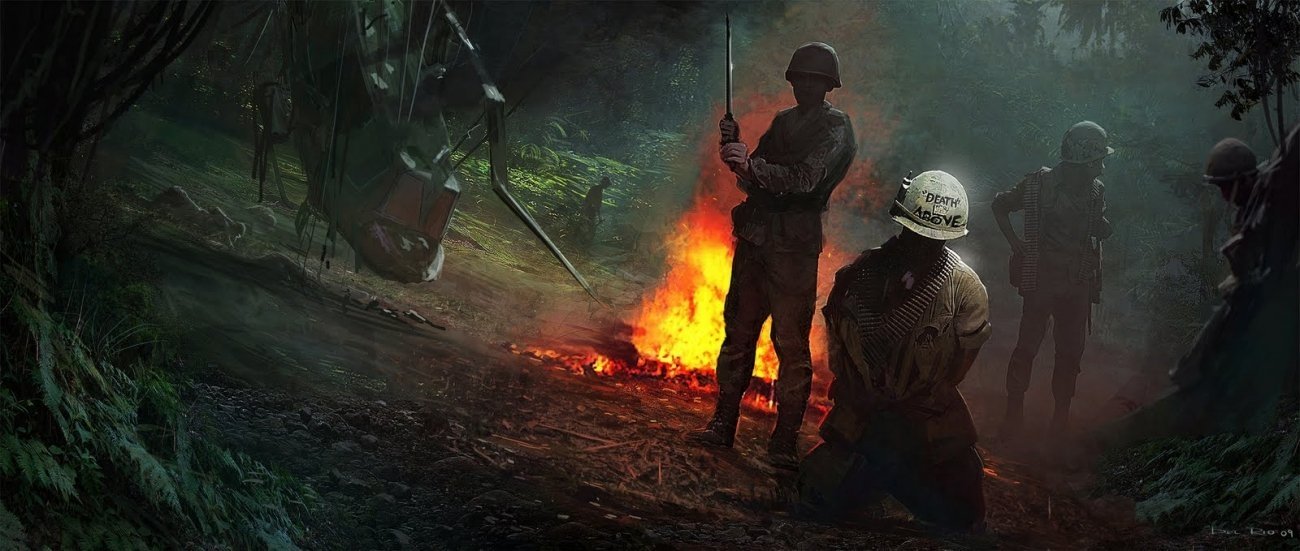

The menu of each mode in the game passes the eye test.

Too bad almost every single weapon in the game flat out sucks. The historical significance of a lot of these weapons also means that WWII enthusiasts can probably appreciate the research that went into choosing them for this video game. Activision and Treyarch probably intended for the wide variety of choices to give credence to a metagame which was dynamic and boasted plenty of viable, quality options.

The return of classic weapons such as the M1 Garand and PPSH-41 is supplemented with some interesting new choices, such as the Gorenko Anti-Tank Sniper Rifle and the Einhorn Revolving Shotgun. In theory, the player has a good deal of options which are quite flexible and at least should cater to just about any playstyle out there. Let’s talk about why this has been, starting with what little this game has going for it, then talking about why it sucks, starting with the former. In fact, Vanguard has been one of the biggest busts in gaming this decade.

Did it work out?Ībsolutely, positively not. World War II was a somewhat underwhelming attempt to recapture that captivation, so Vanguard was another attempt to try and rekindle that interest. In 2007, World at War came out and turned into an all time classic which still gets fondly looked back on even today. This was the franchise’s first return to the World War II era since 2017, when Call of Duty World War II was released. This year's title – Modern Warfare 2 – “will be the most advanced experience in franchise history” and the publisher aims to “address issues with the 2022 launch,” too.ĭeveloped by Infinity Ward, the game is said to include morality systems, weapon malfunctions, and more besides – whether that's what gamers actually want to see in their Call of Duty games will become clear in time.In November, as per usual, Call of Duty Vanguard was released. Maybe this will be the writing on the walls that lets the likes of Toys For Bob, Beenox, Demonware, High Moon Studios, Radical Entertainment and Vicarious Visions step out of the Call of Duty content mines and return to other, non-CoD projects? Headline studios like Infinity Ward, Treyarch and Sledgehammer Games could then – in theory – spend longer on the development cycle without the need for so many auxilliary studios chipping in to help.Īs for what's next? Well, Activision believes it's identified the problem with 2021's release, and will not make the same missteps in 2022.
Call of duty 2021 series#
Perhaps it's good, then, that the rumours floating around about series developers being eager for Call of Duty to ditch its yearly release schedule seem to have some weight to them. Plus, after a yearly game in the series launching like clockwork for the past 16 years, maybe there's some consumer fatigue with the series? Was it just the setting that turned players off Vanguard? The game, of course, also released up against some other fairly major FPS players in the space – both Battlefield 2042 and Halo: Infinite (as well as Activision's own free-to-play Call of Duty: Warzone) would have eaten into the game's potential audience. ’s World War II setting didn’t resonate with some of our community and we didn’t deliver as much innovation in the premium game as we would have liked.” “While Call of Duty remains one of the most successful entertainment franchises of all time, our 2021 premium release didn’t meet our expectations, we believe primarily due to our own execution. and the World War 2 setting, which didn't land for players more used to modern warfare aesthetics. Going up against Battlefield and Halo was always going to make 2021 tough for CoD.Ī report from suggested that the game's sales were down 40% year-on-year, and even anecdotally, there's less coverage and chatter about Vanguard than any CoD game for the past 10 years.ĭespite all that, a new annual report from Activision has stated that the reason for Vanguard’s lower-than-expected sales was down to a lack of innovation in the game.


 0 kommentar(er)
0 kommentar(er)
